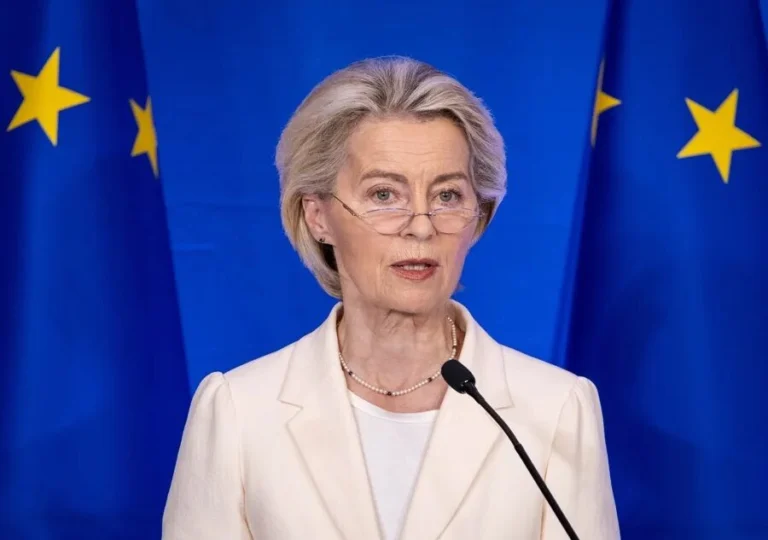Pfizergate Scandal Deepens as EU Evidence Disappears, Undermining Ursula von der Leyen’s Credibility

Eu faces crisis as Pfizer text messages in vaccine deal vanish. Photo: EFE.
August 1, 2025 Hour: 8:18 pm
Key evidence in the ‘Pfizergate’ case against European Commission President Ursula von der Leyen has reportedly vanished, exposing a cover-up that questions EU transparency and sovereignty amid growing political crisis.
Related:
Putin denounces EU’s sovereignty loss after US trade pact: A blow to European autonomy
The European Union faces a deepening political and ethical crisis as crucial evidence in the ongoing ‘Pfizergate’ case against European Commission President Ursula von der Leyen has reportedly disappeared.
Documents revealing text messages exchanged between von der Leyen and Pfizer CEO Albert Bourla,related to the EU’s largest-ever vaccine procurement deal,have been declared lost or destroyed by EU officials, according to a detailed report provided to The New York Times. This loss complicates the transparency demands of the case and raises profound concerns about accountability within the highest echelons of EU power.
The $40 billion agreement reached in early 2021 between the EU and Pfizer symbolized a historic public health initiative; yet, the shadow cast by ‘Pfizergate’ reveals how corporate influence has permeated supposedly sovereign institutions.
Critics from left-wing political spheres, including international anti-corruption advocates and independent media, denounce the concealment of communications by von der Leyen’s office as emblematic of broader structural corruption and collusion.
The refusal to publicly disclose the exchanged messages, coupled with accusations of document destruction and “usurpation of functions,” highlight the EU leadership’s failure to uphold democratic transparency, instead favoring corporate interests and undermining the bloc’s independence from pharmaceutical and financial powers.
The legal proceedings sparked by Belgian lobbyist Frédéric Baldan and the New York Times’ appeals showcase the intense pressure on von der Leyen’s administration, culminating in the rare motion of censure against her,the first in over a decade.
However, the case’s dismissal on immunity grounds and the EU’s justification citing lost data due to device replacements portray an institutional effort to shield powerful figures from accountability.
These developments reflect a systemic erosion of sovereignty within the EU framework, where judicial independence is subordinated to political expediency and corporate interests, thus exacerbating public disillusionment with neoliberal institutions and their democratic deficits.
Author: YCL
Source: RT

